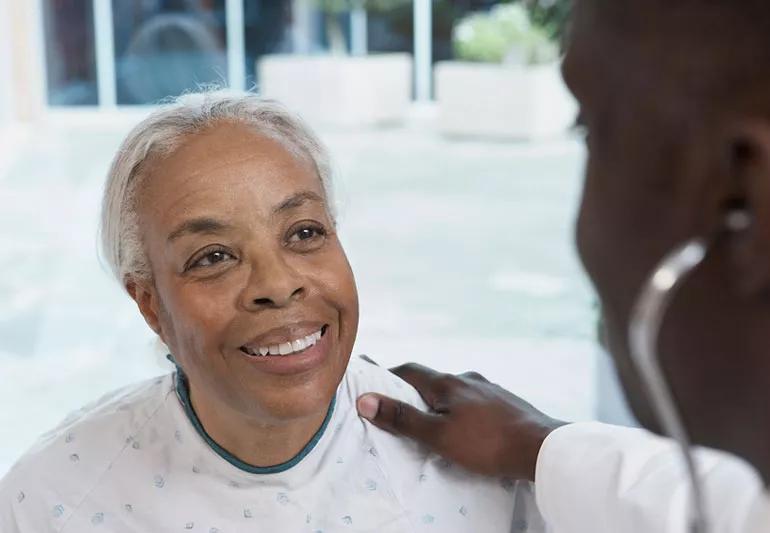The short answer from a geriatric medicine specialist

Image content: This image is available to view online.
View image online (https://assets.clevelandclinic.org/transform/76c74959-bdf8-41b7-a873-1904dd0b05e8/geriatricPtntDoc-73773002-770x553_jpg)
Elderly woman visits with her doctor for a checkup
A: A geriatrician is a doctor who is a successful aging specialist. We have additional training in successful aging – so not just treating diseases of the elderly but also preventing diseases of the elderly.
Advertisement
Cleveland Clinic is a non-profit academic medical center. Advertising on our site helps support our mission. We do not endorse non-Cleveland Clinic products or services. Policy
What we do is very distinct and unique. We are not trying to duplicate what your primary care physician does. Your primary care physician knows you well, and you have a relationship that has been built over time. We very much want you to have that. But we want you, in addition, to come in and see your aging specialist once a year.
We will talk about issues that might not come up in conversation with your primary care physician, such as:
There are about 52 ways that our bodies naturally change between ages 50 and 80 – things like eyesight, hearing and memory. We can talk through those things and differentiate between what’s normal and what’s not. We also talk about the importance of less obvious things like staying hydrated because you might not feel as thirsty, and eating enough protein so that you’re maintaining muscle.
We generally start seeing people around age 50. There’s not an age where you suddenly become “geriatric,” but in terms of successful aging, you can never start too early.
Advertisement
We want you to feel empowered to know what’s changing with your own body so that you can take control of your own health and make these adjustments. People are living longer but they’re also living better. We are the biggest advocate for each one of us as we get older.
— Geriatric medicine specialist Ardeshir Hashmi, MD
Advertisement

Sign up for our Health Essentials emails for expert guidance on nutrition, fitness, sleep, skin care and more.
Learn more about our editorial process.
Advertisement
Bleeding is a risk and warrants taking care, but the reward of this lifesaving medication is great
Severe and debilitating headaches can affect the quality of your child’s life
With repeat injections over time, you may be able to slow the development of new wrinkles
Although it can be alarming, it’s normal to experience blood clots during menstruation
Stretch before heading outside, keep proper form and avoid jerking or twisting to throw snow
Type 2 diabetes isn’t inevitable with these dietary changes
Applying a hot or cold compress can help with pain
Pump up your iron intake with foods like tuna, tofu and turkey